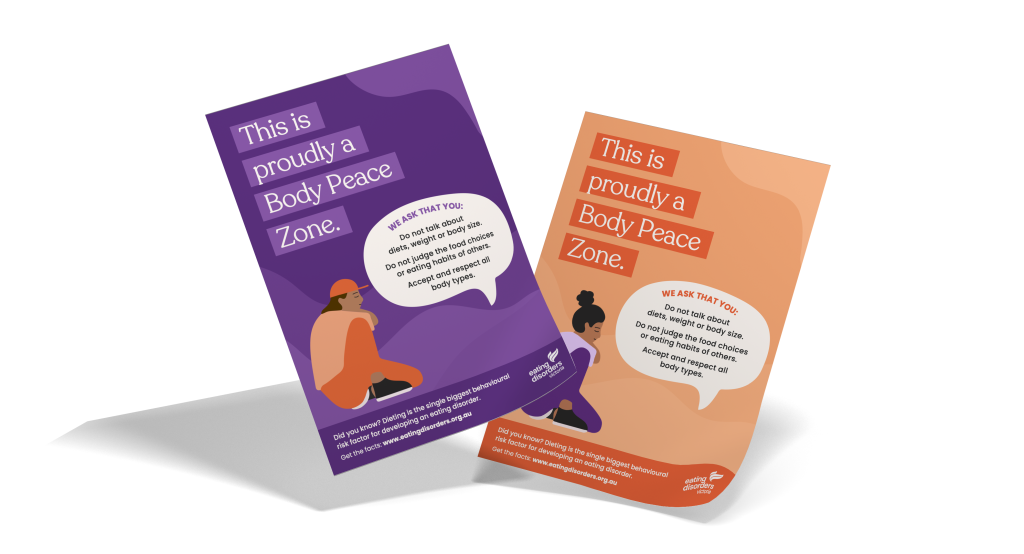Diet culture is a group of societal beliefs that overly value physical appearance, glorifying thinness or muscularity as the ideal way to look, and implying that it is a personal ‘failure’ not to achieve this. It creates a (false!) moral hierarchy of body sizes and shapes.
Everyone is exposed to diet culture – not just people with eating disorders. It is a multi-billion dollar industry designed to profit off making us feel insecure about our bodies through imposing unrealistic beauty standards and then selling “fix all cures”. These “cures” can look like fad diets, slim teas, weight loss products, ‘guilt-free’ foods or exercise programs sold through ‘before and after’ images.
Over the years, diet culture has become even sneakier.
In some ways, we’ve progressed in terms of the narrative shifting from overt diet and weight loss tips to now being more around “wellness” or a “healthy lifestyle”. However, many of these “wellness” messages are just diet culture in disguise, making it more even difficult to avoid.
While messaging has switched from weight loss dieting to “eating clean” or “lifting heavy”, the core of the idea remains that thinness and muscularity are the ideal to be achieved. The murkiness around “wellness” has also seen the rise of orthorexia, an eating disorder that presents as an obsessive desire to only eat “clean” or “healthy” foods.
Diet culture is also pervasive on social media, with trends such as “being that girl” or “what I eat in a day” videos imposing harmful ideals on an audience that is often young and more naïve.
